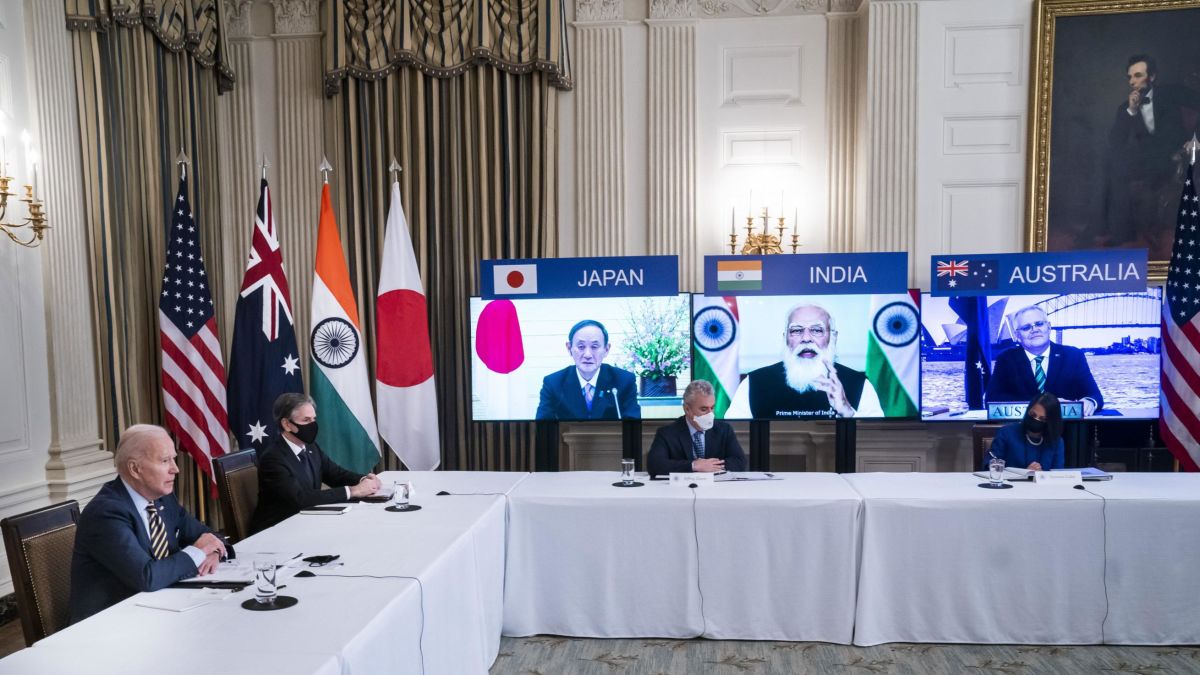US China Strategy: Seeking Coexistence Despite Antagonism
(Japan) on 17 March 2021
by (link to original)
In a joint statement from the Japan-U.S. Security Consultative Committee security discussions (also known as a "two plus two"), foreign and defense cabinet members from the U.S. and Japan censured China, stating that the alliance is "committed to opposing coercion and destabilizing behavior toward others in the region, which undermines the rules-based international system."
After attending the two plus two in Japan, U.S. Secretary of State Antony Blinken and Secretary of Defense Lloyd Austin will visit South Korea. Just before this round of visits, the first Indo-Pacific region online summit meeting was held with the U.S., Japan, India and Australia, at the appeal of the U.S.
The aim of President Joe Biden's administration, which has demonstrated such rapid action, is to refine and coordinate a policy toward China with allies and friendly nations that share the values of democracy, human rights and rule of law.
In a joint statement from the leaders of the four nations at the Indo-Pacific region summit, the nations affirmed that they are "united in a shared vision for the free and open Indo-Pacific."
The Biden administration is positioning the framework of this so-called "Quad" of nations as the basis of its Indo-Pacific policy. On the other hand, India, which has traditionally been a "non-aligned" country, was concerned that the Quad would be interpreted as besieging China, and thus was hesitant about holding the summit. India's inclusion is thus significant.
However, rather than antagonism in the Indo-Pacific region, the ocean must be open to coexistence and mutual prosperity. No one profits from increased tension in Asia, which is at the center of world economic growth. The Quad must work to fulfill the role of ensuring stability in the region.
We hope to see the Biden administration emphasizing relationships with allies and coordinating its views with allied nations. This is not the time for the U.S., a significant national power, to forcibly coerce allies into cooperation. We would like for the nations to jointly refine a strategy toward China with a long-term perspective.
The unfolding power struggle between the U.S. and China in all fields, including trade, military and high tech, has been called the "New Cold War."
Biden views China as the "most serious competitor to the U.S."
At the same time, Biden has shown a cooperative stance toward China on global issues such as climate change and infectious disease.
We hope that the U.S. will strive to maintain the balance between "competition and cooperation."

